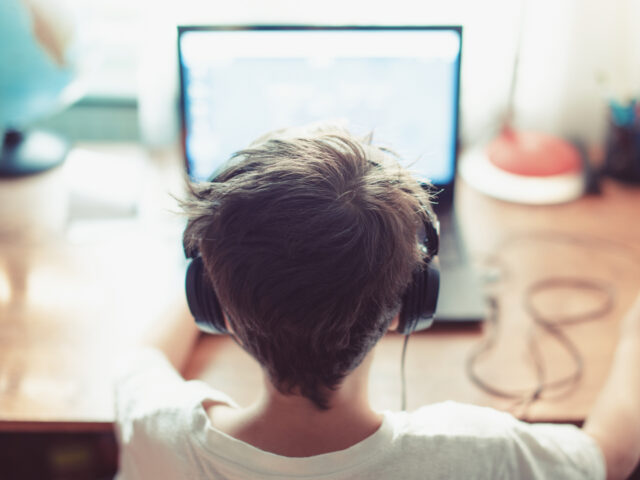The instances of children being coerced by adults into putting sexualised images of themselves online has increased by fourfold since the beginning of the use of lockdowns during the Chinese coronavirus crisis, a report has found.
Figures published by the Internet Watch Foundation (IWF) found 19,670 pages of sexual images “self-generated” by children as young as seven-years-old in Britain often in their bedrooms after being blackmailed or tricked by adults into posting them online.
This is an increase of 360 per cent since lockdowns were first instituted in Britain when 4,277 similar instances were uncovered and a 66 per cent increase over 2021, when 11,873 were found.
The IWF found that the fastest growing age subset for such activity was among children between the age of seven and 10 years old, which also saw the most amount of new sites hosting sexualised images out of any age group. The report claimed that in the first half of 2022, the top five such websites were previously unknown to the charity.
An analyst for the IWF said: “Every day, I see children who have been asked to remove their clothes, stand naked or perform in front of a camera.
“They’re asked to show close ups of their genitals and sometimes use household objects to masturbate with. This happens in their bedrooms, mostly, where we see toys, laundry baskets, posters on walls, teddy bears and wardrobes full of clothes.”
The IWF said that the number of 11 to 13 year olds being tricked or blackmailed into posting sexualised images of themselves online had also doubled since 2019, up from 27,090 to 56,179.
Among those between 16 to 19, there was a 151 per cent increase and a 36 per cent increase was witnessed among children between the ages of 14 and 15.
Nearly One Million People Pose a Sexual Risk to Children in the UK, Reveals 'British FBI' https://t.co/EmbBmEK3kK
— Breitbart London (@BreitbartLondon) May 26, 2021
Commenting on the report, Home Secretary Priti Patel said: “The cruelty and inhumanity of people who abuse children is appalling. Since becoming Home Secretary, I have been unequivocal in my backing of law enforcement to go after those disgusting offenders who abuse children both in the U.K. and abroad. I have led every international effort to tackle this abuse and persuaded my international counterparts to do the same.
“Online child sexual abuse has a lifelong effect on victims. I have pursued policies and actions to ensure technology companies are held accountable for keeping our children safe.”
There have long been warnings that sexual predators would use the lockdowns, in which children spent far more time at home and on the internet than before, to increase their operations in manipulating youngsters online.
In March of 2020 — at the beginning of lockdowns — Europol warned that sexual predators would try to take advantage of coronavirus restrictions to exploit children, noting that they had already at that point noticed an “increased online activity by those seeking child abuse material”.
These warnings were backed up in October of 2021 when WeProtect Global Alliance released a report claiming that the lockdowns had resulted in a significant jump in online child abuse, including a 77 per cent increase in youngsters posting either nude or sexualised images of themselves on the internet.
The chief executive of the Internet Watch Foundation, Susie Hargreaves OBE said: “Children are not to blame. They are often being coerced, tricked or pressured by sexual abusers on the internet.
“Child sexual abuse which is facilitated and captured by technology using an internet connection does not require the abuser to be physically present, and most often takes place when the child is in their bedroom – a supposedly ‘safe space’ in the family home.
“Therefore, it should be entirely preventable. We need to attack this criminality from several directions, including providing parents and carers with support to have positive discussions around technology use and sexual abuse, within the home.”
38 Suspected Online Grooming Paedophiles Arrested in London https://t.co/LVQTXoSdV1
— Breitbart London (@BreitbartLondon) May 27, 2020
Follow Kurt Zindulka on Twitter here @KurtZindulka

COMMENTS
Please let us know if you're having issues with commenting.